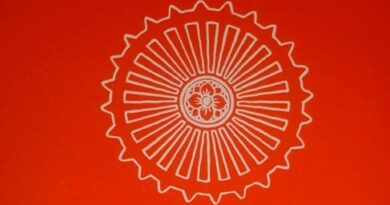Utilisation Of The Four Requisites
Utilisation of the four requisites
Bhikkhūs are not allowed to earn a living by activities such as trade and agriculture. Such mode of living is a wrong livelihood. After, ordination one should live on the four requisites that are provided by devotees. “These bhikkhūs are moral and virtuous. They are suitable to receive veneration and offerings.” In such consideration, lay people offer bhikkhūs, their wealth earned by sweat and suffering without using it themselves or giving their children. Sometimes one would consume something simple and offer bhikkhūs delicious food. Sometimes they would go hungry and offer alms to bhikkhūs. It is a serious matter if such offerings of the four requisites are consumed happily, inconsiderately and deluded with attachment, greed and conceit.
There are four ways of utilising the four requisites known as Theyyaparibhogaya, Iuaparibhogaya, Dāyajjaparibhogaya and Sāmiparibhogaya.
Bhikkhūs and sāmaceras in this sāsana receive the four requisites because Buddha has approved their acceptance. If the Buddha has not done so, these requisites would not have been made available. Therefore, the four requisites belong to the Buddha. The Buddha allowed them for the moral and not the immoral ones. They do not belong to the immoral ones. Devotees offer them in consideration of the fact that “they are moral beings”. Therefore, they do not belong to the immoral beings. It is robbery to utilize offerings of the four requisites made to the moral, whilst being immoral. Therefore, such use is called Theyyaparibhogaya.
Even the virtuous bhikkhūs should use the four requisites after reflection. All items such as food, drink and garments used by humans create defilements such as greed, conceit and jealousy. Greed arises due to the thoughts, that these robes are beautiful soft and good, this food is tasty, healthy and good and that this shelter, furniture and bedding are good. Conceit develops due to the consideration that I am a very fortunate person to receive such good robes and delicious food and I am a very fortunate person to live under a good shelter using good furniture. The dislike to allow another to utilize requisites belonging to one and the dislike towards others receiving similar items cause the development of jealousy. Anger arises when harm comes the way of one’s requisites. Ill- will arises when a cheap robe or poor food is received. Great merit will accrue to the supporters only if the bhikkhūs use the requisites in a manner that will not result in the development of defilements. Means to consume without causing defilements is reflecting upon them. Great merit will not accrue to the supporters if they are used greedily without reflection. Accepting and utilizing the four requisites offered by supporters with the expectation of great merit, in a manner not conducive for such merit are like taking a loan. Bhikkhūs who act in this manner will have to repay the loans to the supporters during future births. Utilisation of the four requisites without reflection is called Iuaparibhoga. Being a moral person alone is not sufficient to become a person suitable to utilize the four requisites. Even the moral person should utilize the four requisites with reflection in order to avoid Icaparibhogaya.
Utilising requisites without reflection is not a minor matter, but a serious fault. Buddha having seen novice monks consuming food greedily without reflection stated with a great sense of urgency that if He were to declare a fifth pārājikā (defeat) it would be for consuming food without reflection, however as living beings have to consume food everyday it is not proper to establish such a serious rule1. It is given in the commentaries to the sanyutta nikāya that the Buddha preached the Puttamansopama sutta with a view that bhikkhūs would realize, that the utilization of the four requisites without reflection is a serious offence and will therefore refrain from doing so. Tathagata preached the Dhamma dāyāda sutta solely for this purpose.
1 “Tato cintesi. Sace me pañcamau pārājikau paññapetuu sakkā abhavissa apaccavekkhitāhāra paribogo pañcamau pārājikau katvā paññapetabbo bhaveyya. Na pana sakkā evau kātuu dhuvapaiisevanaiihanau hetau sattānau.”
(Abhisamaya sanyuttauuhakathā – mahāvaggo sattamo)
The use of requisites by the three sekkas (three persons under training- also mean disciplined people) namely stream enterer (sotāpanna), once-returner (sakadāgāmi) and non-returner (anāgāmi) is called dāyajjaparibhoga. They are the sons of the Tathāgata. Sons are heirs to the belongings of the father. Things received by the sāsana belong to the Tathāgata. Sekka persons having reached the status of sons of the Tathāgata utilize them as their own right. Utilising what is rightfully your’s is proper.
Consumption of requisites by Arahants is known as Sāmiparibhoga. They have unchained themselves from slavishness to greed and utilize them as heirs. Arahants having overcome all defilements and being capable of converting offerings to result in great merit are in every way suitable to receive offerings. Therefore, they become owners of material received by the sāsana.
Among these the Dāyajjaparibhoga and Sāmiparibhoga are proper utilization. Icaparibhoga and Theyyaparibhoga are improper. Consumption by moral bhikkhūs with refletion is opposed to Icaparibhoga and therefore termed Anacaparibhoga. Consumption without debt is its meaning. It should also be included in Dāyajjaparibhoga.



